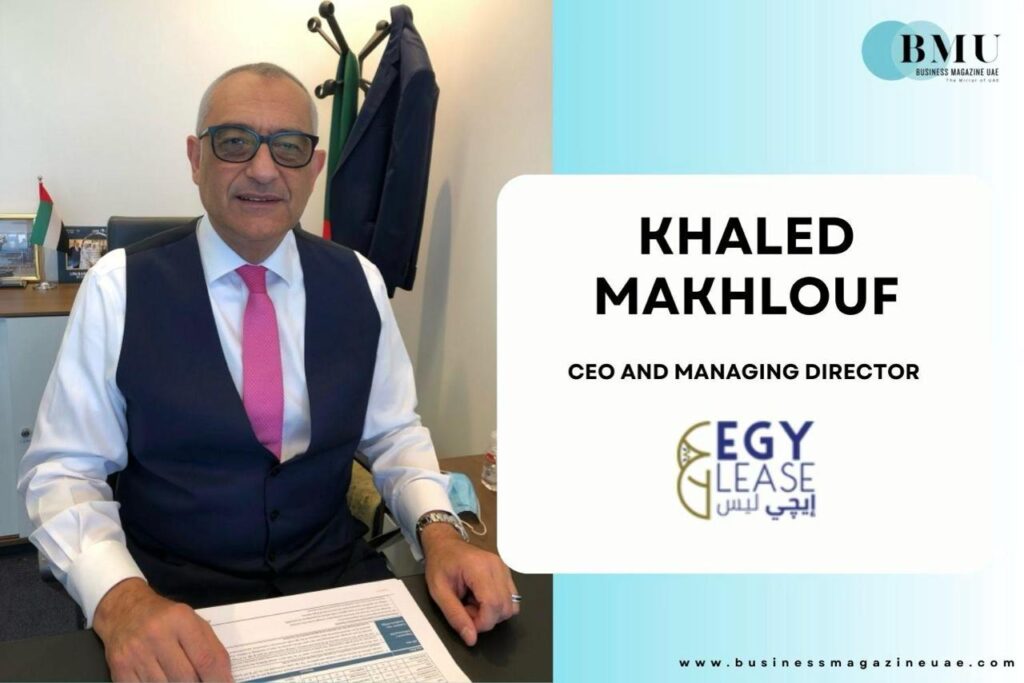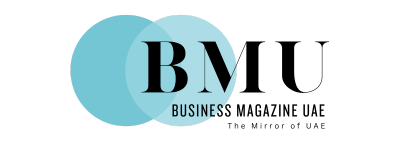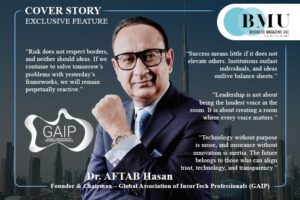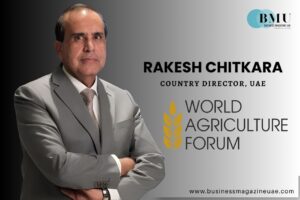
We recently had the privilege of interviewing Khaled Makhlouf, CEO and Managing Director of EgyLease, an Industrial Development Bank (IDB) company. With more than 40 years of professional experience, Khaled has worked at 8 reputable global, regional, and local banks in 4 countries. With core expertise in Risk Management, Corporate Banking, Islamic and Investment Banking, Khaled Makhlouf had exposure to more than one country in his previous jobs, helping him hone in-depth expertise in the banking sector. As the CEO of EgyLease, Khaled leads the transformation and growth of the company, placing it as a key player in the financial leasing market in Egypt.
The Beginning
To start the interview, we asked Khaled Makhlouf, “What inspired you to start or lead this business, and how has the journey surprised you?”
Khaled Makhlouf shared, “I joined the banking sector soon after I graduated from the Faculty of Economics and Political Sciences, Cairo University in 1983. At that time, I had two options, either a banking career or a University Education career. I felt that at that time, the courses that we studied in the university were way too theoretical and somehow away from the real world, particularly the so-called marginal utility theory, the basis of microeconomics science. I felt that I wanted to get into the real world, the real economy, and the related broader picture. That’s why I decided to turn down the education career despite my passion for teaching and coaching and I carried on with banking.
Throughout my 40+ years of banking, I was surprised by the massive information I got access to. My specialty was predominantly corporate banking and credit risk, yet, under this, I got exposure to corporate banking, financial institutions, country risk, government and semi-government lending, retail banking, syndicated loans, and treasury. Furthermore, I learned a lot about remedial and recovery, Islamic and Investment Banking. If you have exposure to more than one country, which I had in previous jobs, you feel like you are sitting on top of the world. You feel like you know a lot about everything however, at the end of the day and when the journey gets close to the end, you realize that what you know is way too little, as the French proverb says – Plus je sais, plus je sais que je ne sais pas – or the more I know, the more I know that I don’t know.”
Advice To Younger Self
We asked Khaled if he could go back to his first year in the present role, and what advice would he give himself.
“The advice that I always give to myself is how to develop my skills. Upon joining Arab Bank in Cairo soon after graduation, there was almost no professional training for the first five years. I realized in the interim that if I continued like this without self-development, I would end up like many other normal employees, who are happy to get one of the highest salaries in Egypt at that time, but in the long run, their career potential will be very limited.
Therefore, I subscribed to the Post Graduate Program at our university and I chose the topic of my thesis as – ‘Corporate Bad Debts in Egypt, Analytical Studies’, which perfectly combines my educational background along with my practical banking experience. The thesis is part of managerial economics and uses econometric models to analyze and identify the causes of insolvency of Egyptian companies.” He reflected
More About Khaled Makhlouf Thesis
We further asked, “Do you mind elaborating more about your thesis?”
Khaled Makhlouf added, “The idea is simple. I provided the basis of feasibility studies, working capital management, and the historical performance of 7 companies operating in different industries. I compared the projection results as stated in the corresponding feasibility studies with the actual results as per their audited financial statements. From that comparison, I got an initial assessment of the insolvency causes. However, to be more precise, one should always assess the financial as well as the non-financial factors, which I also covered in each sample.
After I am done with the individual results, I use an econometric model that consolidates the said results and comes up with the suggested causes at the macro level. Finally, I proposed the remedial actions needed to help those companies overcome their insolvency and get back again to the healthy corporate world so that they positively contribute to the national economy.”
Embracing Challenges
We asked Khaled Makhlouf to share his approach to solving problems that don’t have clear solutions.
Khaled Makhlouf responded, “You would be surprised to learn that many times, when a problem doesn’t get resolved in the evening after a long day at work, it gets resolved in the morning when your mind is fresh. Sometimes, we get lost into too many details and we miss the broader picture. If the problem remains too complicated, subdivide it into its core components and work on addressing each component alone.
Having said that, we do not always succeed in solving problems on our own. Bringing more people helps a lot because 6 eyes are better than 4 and 4 are better than 2. Like the wide angle that gets covered by 6 eyes, so is the size and bottom of a problem.”
Career-Defining Experience
We inquired Khaled about an experience that shaped the way he currently runs his business.
“This happened with Ahli United Bank, Head Office during the global financial crisis in 2008. On the financial institutions’ side, I realized two things. Firstly, in a crisis like we had, it is not always wise to have 200 banks in your books. These are impossible to monitor, particularly when you have surplus liquidity and a flow of funds coming to you when other banks are hungry for cash. How to manage your interbank liquidity without getting into a default risk by your counterparts was a big challenge; secondly, systems are not a luxury or an option.
Treasury systems should be the same in all your countries and should all talk to each other and have the capability of consolidating your exposure. Depending on Excel sheets can lead to disasters. That’s why in my current job, the first thing I did was to develop a reliable system capable of covering all our needs for many years to come at all our Business Units, leasing, factoring, and mortgage. The system has the flexibility to add more lines of business with minor future investments.” Khaled mentioned.
Successful Out-Of-The-Box Ideas
We also posed the question, “What’s the most unconventional idea you’ve implemented, and how did it turn out?”
Khaled Makhlouf explained, “In my current job and given the many challenges that we are facing, rather than opting for a top-down approach, my team members came up with the solutions themselves and they subscribed to the ideas that they suggest. Let’s face it, alone we cannot do miracles and we cannot be top performers. Always talk to your people, let them brainstorm, and come up with ideas. I took them to an offsite and listened to all of them. Unrealistic ideas generally come from people who do not have the relevant experience. While it may not help the business per se, however, it will help in the development of the staff and will get their buy-in and their commitment. This makes a huge difference in the way we manage our business. Having said that, you would be surprised to know that in many instances, brilliant ideas and suggestions came from junior and beginner team members and implementation produced amazing results. Here, not only we save expensive consultants’ bills, but we engaged and motivated those members to enjoy their jobs and deliver more.
Team Building exercises help a lot in this situation. Everyone now works as one team that has their common objectives. The result is that not only each one achieves his targets in isolation but he or she helps the other team members to deliver. The outcome was beyond imagination.
Staying Ahead of the Curve
We were interested to learn how Khaled ensures that businesses stay ahead of the competition. So, we asked, “How do you identify and seize the latest opportunities in your industry?”
Khaled Makhlouf mentioned, “As we operate in the financial leasing world, there are many opportunities that exist despite the challenges. While these challenges are mainly the Central Bank of Egypt (CBE) concentration limit (5% of the financing banks’ portfolio to leasing companies and 1% to a single lessor) and the very high interest rates that reached 28% lately, however, many opportunities exist.
Our book is still not that big and therefore, there are good chances to achieve a very high growth rate. We are also diversifying this year in the factoring business, which offers more return and there is no such concentration cap. The mortgage business is also attractive. Having said that, as factoring doesn’t provide tangible collateral contrary to leasing, we must be conservative and selective in penetrating the market. Mortgage is somehow similar in terms of risk given the unpredictable real estate market after years of price overheating.”
To summarize, the 5Cs remain a cornerstone of our risk assessment. If the industry is stable, the cash flow is robust, so your primary repayment source is good and if your recourse and collateral is of a high quality; and if you have multiple ways-out, then you are playing safe. These are the basics that every credit officer learns either in a course of on-the-job, however, unfortunately, we do not seem to adhere to them the way it should be in the financial world. Balancing business and risk is a must, however, sometimes it is missed.
An Efficient Leader
Curious to learn about Khaled Makhlouf leadership approach, we asked, “If you had to describe your leadership style in one word, what would it be, and why?”
“Together we can – this is my slogan because as I said earlier, I believe in teamwork. Alone, I may develop part of the strategy but it will never be complete or accurate and there is no way I can achieve it without engaging my team members therein” He responded.
Adaptability Amidst Challenges
We asked, “Can you share a challenge you faced that led to a surprising breakthrough?”
“Well, it is not a very pleasant one, but I will share it with you. Two months after I took over as the CRO of ABN AMRO Bank in UAE, my daughter met with a major car accident in Dubai that left her with disability. I then realized that the party was over and that as a caring father, I must take my life and career even more seriously so that I continue providing medical care and moral support to her.
Challenges sometimes provide unbelievable inner power. This was felt in my first presentation to my senior management of Amsterdam and they said they were pleasantly surprised and impressed by a change to even better performance. This continued indeed throughout the latter part of my career for almost twenty years now.” Khaled shared.
Transforming The Industry
We ended the interview by asking, “If you could change one thing about the industry you work in, what would it be?”
“I would recommend lifting or alleviating the CBE cap on leasing companies consisting of only 5% from the total portfolio and 1% for single leasing obligations. I do not understand the related rationale because leasing companies are not operating in one or even a few industries, but they operate in many diversified industries.
Furthermore, the lending structure provides always two ways out given the recourse to the leasing company in case the lessee defaults. While people may say that many leasing companies in the market are not owned by banks and hence do not enjoy reliable parent support, lending banks will always be selective in choosing the good companies with which they are dealing. Having said that, CBE senior officials have indeed access to information that I miss. As such, I lack the full picture and therefore these officials do have good reasons to force this cap” Khaled concluded.
Follow Khaled Makhlouf on LinkedIn.
Find EgyLease (IDB Group) on LinkedIn and visit their website http://egylease.co/.
Also Read :-
Abdulrahman Alsheail: Leading with People, Shaping Institutions
Building Successful Restaurants With Zeora Hospitality: Gergely Szabo and Mark Towning







